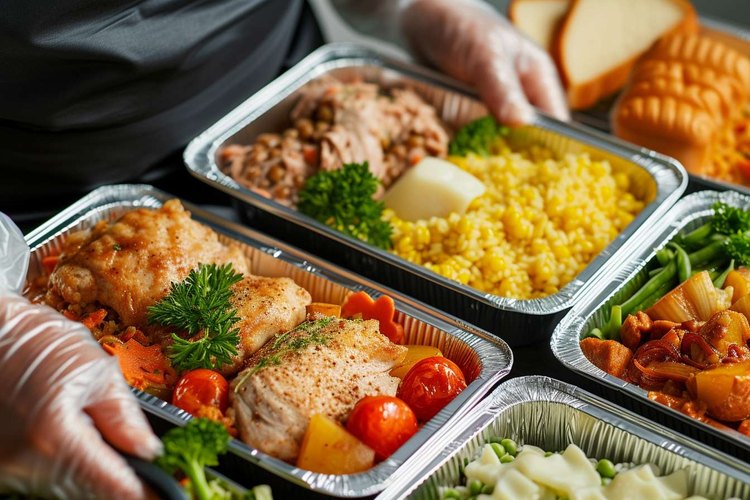Read tips for simple weeknight dinner recipes
After a long day at work or managing household tasks, the last thing anyone wants is to spend hours in the kitchen preparing dinner. Weeknight meals should be straightforward, satisfying, and nutritious without requiring advanced culinary skills or a pantry full of exotic ingredients. With the right approach and a few smart strategies, you can create delicious dinners that bring your family together around the table without the stress. This guide offers practical tips and ideas to streamline your evening cooking routine while maintaining flavor and nutritional balance.

Weeknight dinners can feel overwhelming when you’re juggling work, family responsibilities, and limited time. However, preparing quick and nutritious meals for everyone doesn’t have to be complicated. The key lies in smart planning, choosing versatile ingredients, and keeping recipes simple yet flavorful. By focusing on efficiency and balance, you can transform your evening cooking routine into something manageable and even enjoyable.
How can you create quick and nutritious meals for everyone?
The foundation of any successful weeknight dinner starts with understanding what makes a meal both fast and nutritious. Focus on incorporating lean proteins like chicken breast, fish, or legumes, paired with whole grains such as quinoa or brown rice, and plenty of colorful vegetables. These components provide essential nutrients while keeping preparation time minimal. Batch cooking proteins on weekends can save significant time during busy weekdays. Grilled chicken, baked salmon, or cooked beans can be stored in the refrigerator and quickly incorporated into various dishes throughout the week. Sheet pan dinners are another excellent option, allowing you to roast protein and vegetables together with minimal cleanup. Season with olive oil, garlic, and herbs for a complete meal that requires less than 30 minutes of active cooking time.
What are easy recipes with minimal ingredients?
Simplicity is the cornerstone of stress-free weeknight cooking. Recipes that call for fewer ingredients not only reduce shopping time but also minimize decision fatigue. A classic pasta dish with garlic, olive oil, and parmesan requires just a handful of pantry staples yet delivers satisfying flavor. Stir-fries are another versatile option where you can combine any protein with seasonal vegetables and a simple sauce made from soy sauce, ginger, and a touch of honey. One-pot meals like chili, soup, or curry eliminate the need for multiple cooking vessels and complex techniques. These dishes often taste even better the next day, making them ideal for meal prep. Consider keeping a well-stocked pantry with essentials like canned tomatoes, pasta, rice, beans, and basic spices. With these foundations, you can create countless variations without needing specialty ingredients.
Why are these recipes perfect for busy weeknights?
Time constraints define the weeknight cooking experience for most families. Recipes designed for busy schedules prioritize efficiency without sacrificing quality. Quick-cooking methods like sautéing, broiling, or using a pressure cooker can dramatically reduce cooking time. A pressure cooker, for instance, can prepare dishes that traditionally take hours in a fraction of the time. The beauty of weeknight-friendly recipes lies in their flexibility. Many can be adapted based on what you have available, reducing food waste and unnecessary grocery trips. Prep work can also be minimized by purchasing pre-cut vegetables or using frozen options, which are often just as nutritious as fresh and require no chopping. Building a rotating menu of five to seven reliable recipes eliminates the nightly question of what to make for dinner. Once you have a repertoire of go-to meals, grocery shopping becomes more efficient and cooking feels less daunting.
How do you achieve balanced nutrition made simple?
Nutritional balance doesn’t require complicated meal planning or calorie counting. The plate method offers a straightforward approach: fill half your plate with vegetables, one quarter with lean protein, and one quarter with whole grains or starchy vegetables. This visual guide ensures you’re getting a variety of nutrients without overthinking portions. Incorporating different colors of vegetables throughout the week guarantees a range of vitamins and minerals. Dark leafy greens provide iron and calcium, orange vegetables offer beta-carotene, and red vegetables contain lycopene. Rotating your protein sources between plant-based and animal options adds variety and nutritional diversity. Healthy fats from sources like avocado, nuts, or olive oil support nutrient absorption and add satisfying richness to meals. Don’t overlook the importance of herbs and spices, which not only enhance flavor but also provide antioxidants and anti-inflammatory compounds without adding calories or sodium.
Can you discover delicious 3-ingredient ideas?
Minimalist cooking has gained popularity for good reason. Three-ingredient recipes prove that complexity isn’t necessary for delicious results. A simple caprese salad with tomatoes, mozzarella, and basil drizzled with balsamic glaze makes a light yet satisfying meal. Baked salmon with lemon and dill requires only those three components for a restaurant-quality dish. For carbohydrate lovers, consider pasta aglio e olio, which combines spaghetti, garlic, and olive oil into a classic Italian preparation. Chicken thighs seasoned with paprika and roasted with potatoes create a hearty one-pan meal with minimal fuss. The secret to successful minimal-ingredient cooking lies in choosing high-quality components and allowing their natural flavors to shine. Fresh ingredients require less enhancement, and simple preparations often highlight their best qualities. This approach also makes cooking more accessible for beginners who may feel intimidated by lengthy ingredient lists.
What strategies help streamline weeknight cooking?
Beyond individual recipes, adopting smart kitchen strategies can transform your cooking routine. Meal prepping on weekends, even just washing and chopping vegetables or cooking grains, provides a significant head start for busy evenings. Investing in time-saving tools like a quality chef’s knife, cutting board, and non-stick pans makes cooking more efficient and enjoyable. Keep your kitchen organized with frequently used items within easy reach and maintain a running grocery list to avoid last-minute shopping trips. Embrace the concept of component cooking, where you prepare versatile elements that can be mixed and matched throughout the week. Grilled vegetables, cooked grains, and prepared proteins can be combined in different ways to create varied meals without repetitive flavors. Finally, involve family members in meal preparation when possible. Even young children can help with simple tasks, making dinner a collaborative effort rather than a solo challenge.
Weeknight dinners don’t have to be a source of stress or require hours in the kitchen. By focusing on simple recipes with minimal ingredients, prioritizing nutritional balance, and implementing smart preparation strategies, you can create satisfying meals that fit into even the busiest schedules. The key is finding an approach that works for your lifestyle and building a collection of reliable recipes that your family enjoys. With practice, weeknight cooking becomes less of a chore and more of an opportunity to nourish yourself and your loved ones with wholesome, delicious food.


